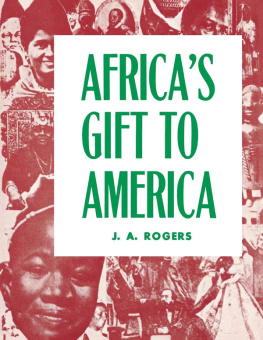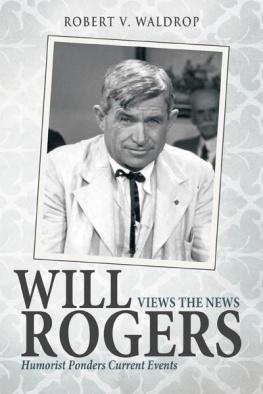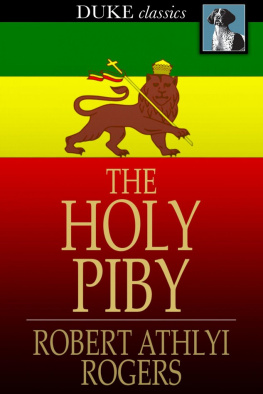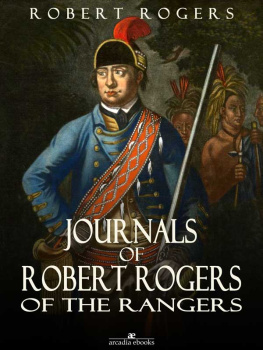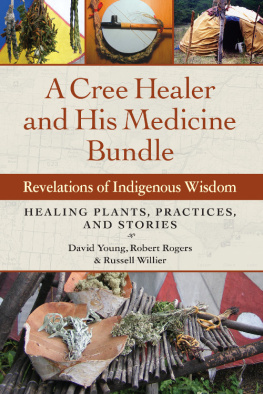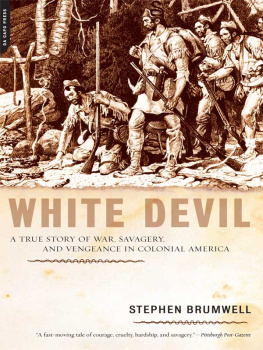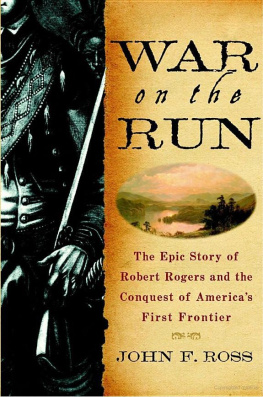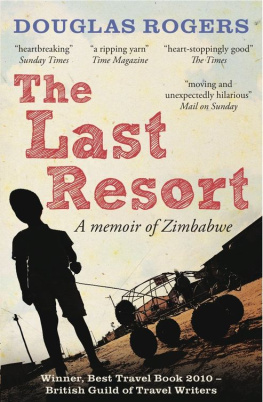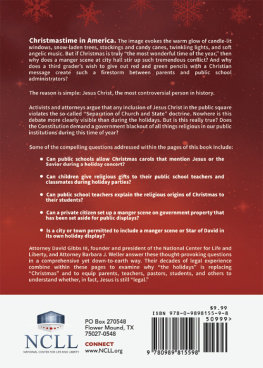ACKNOWLEDGMENTS
Every edition has one author, one editor, and a large number of hands unseen in the final product. I hope to acknowledge here the many contributions, institutional and personal, that have helped to bring Rogers play farther into the light. First, I am grateful to the students in my courses on eighteenth-century drama and on gender and indigeneity at the University of British Columbia; many of my students have offered fascinating comments on and engagements with Ponteach in the classroom and in their papers, and they have come up with several of the important questions I attempt to address in this volume. In particular, I wish to acknowledge the excellent work of Niki Parassidis, Kimberley Read, Carly Ryan, and Nancy Street, students in my 2008 majors seminar, each of whom contributed an original annotation to this edition. I would also like to thank Peter Sabor, who first sold me on the pleasures of scholarly editing, and David Oakleaf, whose gift of a copy of Mary Rowlandsons narrative started me in such an exciting direction.
For their help in confirming the continuity of the print run of Rogers play, I offer thanks to the librarians at Mount Allison University; McGill University; the Toronto Reference Library; Boston Public Library; the John Hay Library, Brown University; the Special Collections Research Center at the University of Chicago Library; the Rare Book and Special Collections Division at the Library of Congress; Houghton Library, Harvard University; the Huntington Library; the University of Virginia; the Rare Book and Manuscript Library, University of Illinois at Urbana-Champaign; the Lilly Library, Indiana University; Special Collections at Michigan State University; Special Collections at the University of Vermont, the Beinecke Rare Book and Manuscript Library, Yale University; the British Library; and the Trustees at the National Library of Scotland. For permission to reproduce the illustrations in this volume, I thank the New York Public Library, McGill University Library, the Clements Library at the University of Michigan, and the Ohio Historical Society. For research on the Ogden family, I am grateful to the scholars and volunteers at Fairfield Museum and History Center in Fairfield, Connecticut.
Editing forgotten plays is to some degree a labour of love, but the love is certainly helped along by good funding. This edition emerged from a larger three-year investigative project on gender and indigeneity funded by a Standard Research Grant from the Social Sciences and Humanities Research Council of Canada. I am most grateful to SSHRC for their support of literary and historical scholarship in Canada. I also wish to acknowledge the support of the Department of English at the University of British Columbia for funding conference travel related to this project.
At the University of Toronto Press, I wish to thank my editor, Richard Ratzlaff, and the two exceptionally engaged and informed anonymous readers. Their criticisms and suggestions have added enormously to this volume; errors, of course, remain my own.
And finally, as ever, I thank most of all my family for their support in everything that I do. I owe my start to my parents, Les and Fern Potter, and I am grateful every day for my brilliant husband Ken Madden and our equally brilliant daughter Sloane. They remind me every day in exactly the right ways how much and how little my work matters.
Vancouver, British Columbia
2010
APPENDIX A: EXCERPT FROM ROBERT ROGERS CONCISE ACCOUNT OF NORTH AMERICA
Rogers Concise Account was popular and well reviewed (see ), but was far from the only publication of its type. Published accounts of travels were common in England between the sixteenth and nineteenth centuries, and generally included some mix of geographical details (including bodies of water, animal life, vegetation, and agricultural possibility); tales of individual adventure and misadventure; reports of European settlements and communities; and descriptions of the lives and persons of Indigenous North Americans. The most widely referenced of these accounts from the eighteenth century include Cadwallader Coldens History of the Five Indian Nations (1747) and James Adairs History of the American Indians (1775). Along with the French Jesuit Relations (161073; ed. Thwaites, 1901) and Pierre Charlevoixs Journal of a Voyage to North America (1744; trans. 1761), these texts offer descriptions from knowledgeable reporters who travelled in North America and had extensive first-person experience with several Indigenous nations and communities. Rogers account purports to be of this group, but though he certainly fought side by side with many Native men and he certainly did travel extensively, his account fits more closely with publications like that of his sometimes protg Jonathan Carver. Carvers (also popular and widely referenced) Travels to the Interior Parts of America (1778), combines first-person knowledge gained in his extensive travels with information gathered from other sources. Like the most accurate sources of eighteenth-century ethnography and geography, Rogers account is important for its consciousness of the distinct natures of the different Indigenous nations and of individual communities within those nations, and his information is generally accurate, but it is essential to note that it is only one account among hundreds, and perhaps middling in its degree of originality of information. It is, however, an excellent example of Rogers general perceptions of Indigenous North Americans and their environment, and thus offers important illumination for Ponteach.
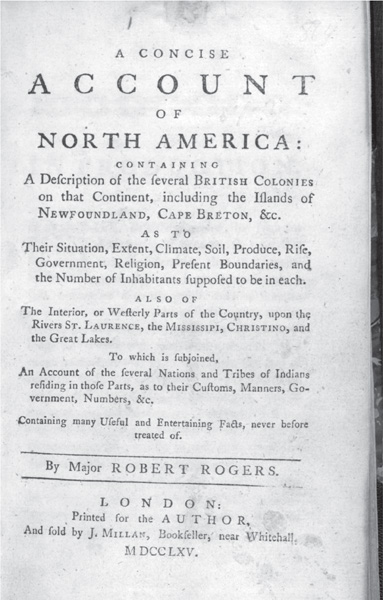
Title page: Robert Rogers, Concise Account of North America. London: 1765 (McGill University Library, Lande Canadiana Collection 761).
CUSTOMS, MANNERS, &C. OF THE INDIANS.
Having thus endeavoured to give a sketch of the interior country of North America, so far as I have any knowledge or intelligence concerning it, I will now more particularly, but briefly, mention the customs, manners, and connections of the Indians who inhabit there.
Those of them who have any concerns or commerce with the English, as such as inhabit from the east-side of the Mississippi to the south-side of the River Christino; and among all the nations and tribes in this vast extent of country, those called the Five Nation Indians stand distinguished, and are deserving of the first notice. They are dreaded and revered by all the others for their superior understanding, activity and valour in war, in which constant practice renders them expert, they being in almost continual wars with one nation or other, and sometimes with several together. Their customs, manners, and modes of dress, are adopted by many of the other tribes as near as possible. In short, those Indians are generally among the other nations esteemed the politest and best bred who the nearest resemble these. Their most northern settlement is a town called Chockonawago, on the south of the River St. Lawrence, opposite to Montreal; but their largest settlements are between Lake Ontario and the provinces of New York and Pensylvania, or the heads of the Mohock, Tanesee, Oneoida and Onondaga Rivers. They claim all the country south of the River St. Lawrence to the Ohio, and down the Ohio to the Wabach, from the mouth of the Wabach to the bounds of Virginia; westerly, to the Lakes Ontario and Erie, and the River Miamee; their eastern boundaries are Lake Champlain, and the British colonies. When the English first settled in America, they could raise 15,000 fighting men; but now, including the Delawares and Shawanees, they do not amount to more than between three or four thousand, having been thus reduced by the incessant wars they have maintained with the other Indians, and with the French, in Canada.


